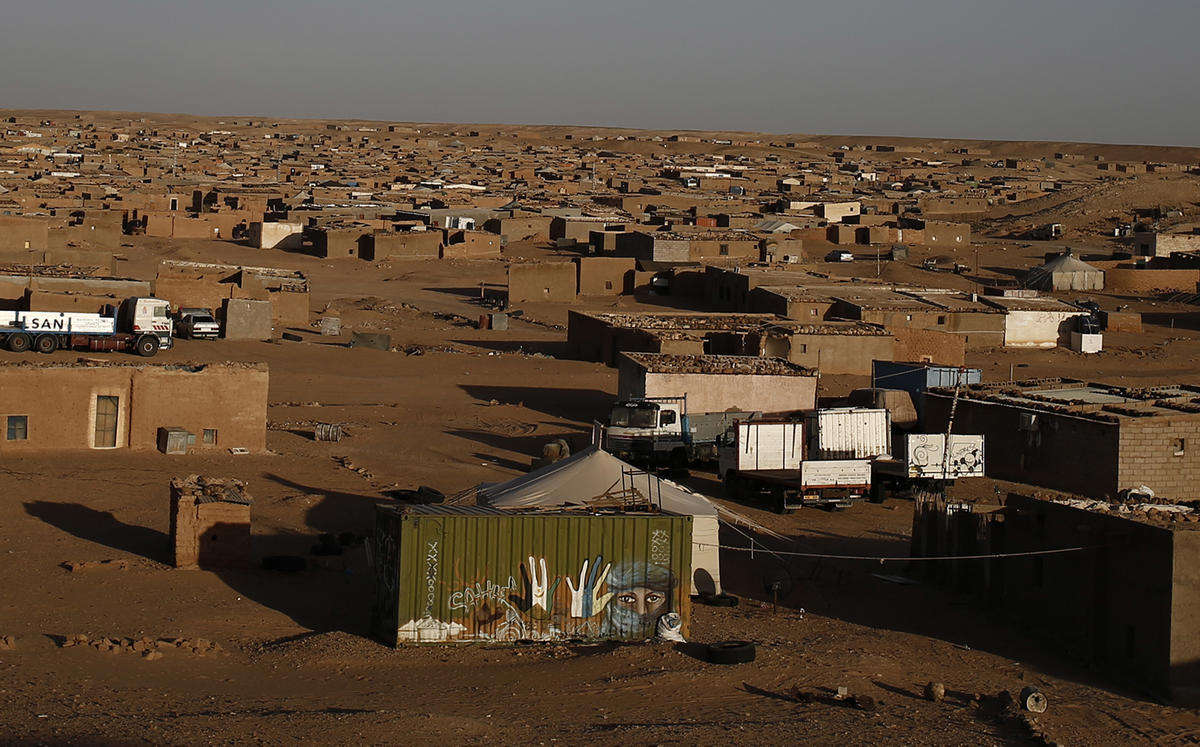Tuareg refugees in Niger herd their livestock to safety
Tuareg refugees in Niger herd their livestock to safety

INTIKANE, Niger, May 7 (UNHCR) - The long column of animals - flanked by men sitting high in the saddle - headed eastwards at a steady pace, raising clouds of dust on the trek towards new pastures.
It may sound like a scene from a Western, but this drama was being played out thousands of miles away and across an ocean in the West African nation of Niger. The cast includes 800 animals, ethnic Tuareg nomads from Mali and the UN refugee agency.
In late April, the caravan of camels, cattle, donkeys, goats, sheep and three horses left the refugee settlement at Agando, about 10 kilometres from the border with Mali, and began the three-day trek to Intikane, a vast area where the Tuaregs will be able to live in an open area and lead their traditional nomadic lifestyle in safety.
All of the 8,000 refugees at Agando and nearby Chinourawen village fled to western Niger with their animals to escape the fighting that erupted in northern Mali early last year or because of continued insecurity or fear of reprisals since January this year, when a French-led counter-attack pushed back rebel forces.
The Niger government's decision to move the Tuaregs to Intikane was based on security grounds: Agando is located just 10 kilometres from the border in an area that remains unstable. It was also a way of letting them lead a more normal life.
"Helping refugees to move their animals will allow them to maintain their livelihoods and to continue living as pastoralists and nomads rather than ending up in a refugee camp dwellers and dependent on aid," noted Karl Steinacker, UNHCR 's representative in Niger.
The Tuaregs were involved in the relocation process from the start. "We held several meetings and we worked out an itinerary," said Mouhamoud Abdoulaye Al Kan Afi. "We were able to go and see Intikane. It is suitable for us and for our animals," added the respected refugee elder, who rode his horse like a young man and was one of the chief herdsmen.
UNHCR brought in local partner, Akarass, to help organize the caravan, which was a major logistical operation. "We worked on every detail: there were water points along the way and food for the herdsmen," said the NGO's Oumarou Danni Saadou, adding that gendarmes on camel-back provided security.
The health of the animals was looked after by a vet, and on arrival at Intikane all the animals were given vaccinations to prevent the spread of disease among livestock owned by the local community.
The three-kilometre-long train of animals arrived in Intikane to a warm reception from the local community. "The refugees and their animals are welcome. What happened to them could happen to anyone," said the village headman, Alghadawi Ilhouda. "We have to support them by sharing our water and pasture," he added in an arid area of scrub and sand.
Some of the Malian herders were delighted to discover that there was a well at Intikane, operated by powerful pumps and generators that had been rehabilitated by UNHCR. "This is simply like rain," said one refugee, Omar Mouhamadou. The 700-metre-deep well also benefits the local community in this part of Niger's Tahoua region, where the Sahel region meets the Sahara.
The Niger government, with help from UNHCR, plans to bring other communities of refugees to safer pastures deeper inside the country over the coming weeks. But unlike the animals and their drovers, most of the refugees will make the journey on convoys prepared by UNHCR's partner, the International Organization for Migration.
UNHCR is protecting and assisting some 50,000 Malian refugees in Niger. They are among more than 175,000 Malian refugees in surrounding countries, including Burkina Faso and Mauritania.
By Bernard Ntwari in Intikane, Niger








